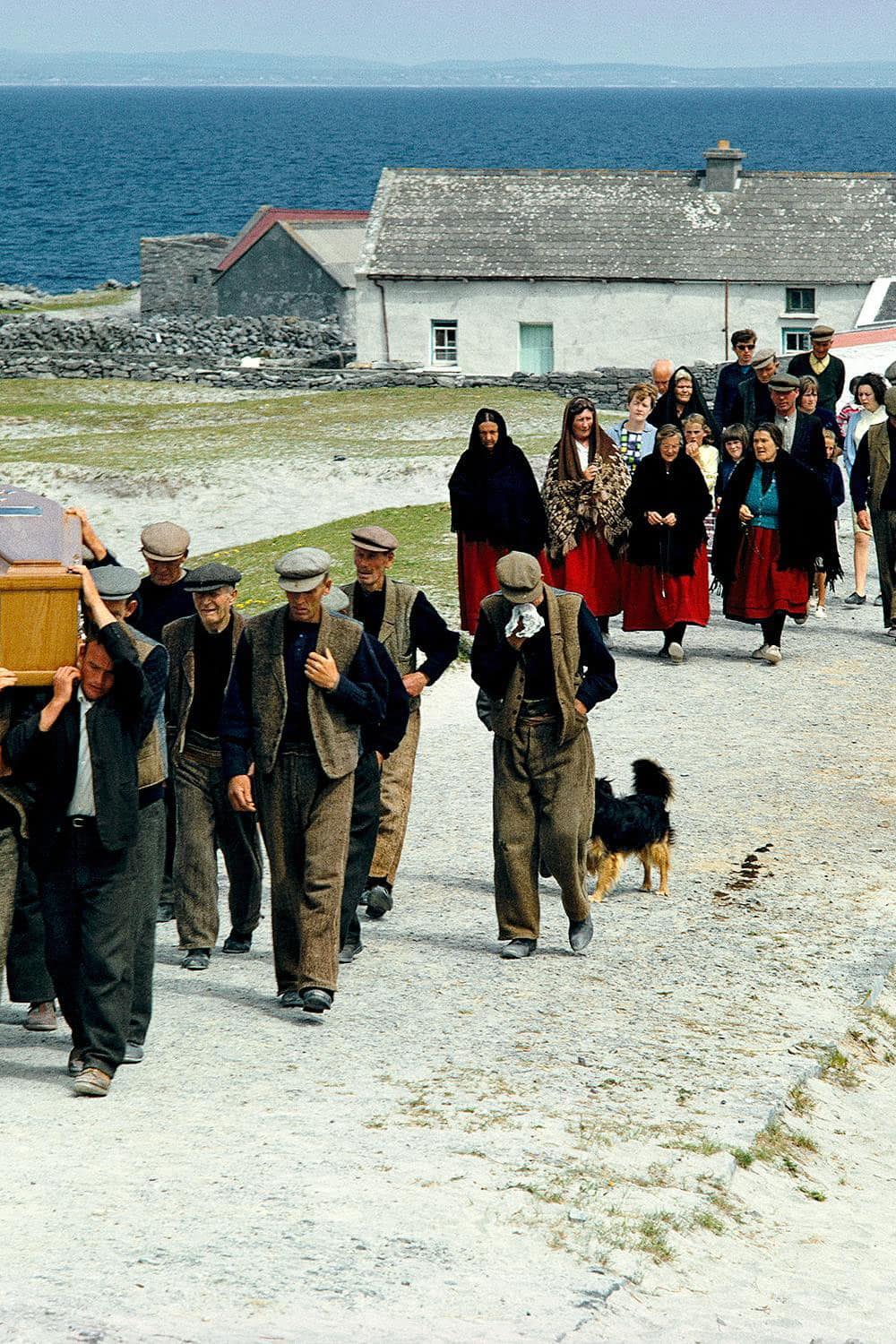By Sally Lewry
This year, in the midst of Autumn as the leaves graciously gifted their nutrients to the tree and blazed in glorious colour right before their death, my maternal grandmother died. The death of the Matriarch shifts and reconfigures personal dynamics and the structure of a family in profound ways. I was not particularly close with my Grandmother and I wouldn’t say that I knew her intimately, but without who, I would not be here. Her death made me reflect on my relationship with my own Mother and the fact that I have not known life without her; this was obviously the reality my own Mother was now facing and I suddenly felt the enormity of my Grandmothers death.
As she was dying my Mother traveled to be with her and her siblings and soon after to plan the funeral and attend to the many tasks that await a family when a loved one has died. To the family’s surprise my Grandmother had already organised a pre-paid funeral with a local funeral director, clearly and simply stating her wishes and how the proceedings were to take place. I personally found this surprising of my Grandmother and admired that she had attended to this prior to her death.
My Grandmother knew she was unwell for some time, which she had predominantly kept to herself. She had already been through a grueling process of cancer treatment and was adamant that she was not going to endure that again. When someone is dying and holds awareness of the fact, it is very important that they have agency in the process. My Grandmother certainly had agency at the end of her life and I deeply admired her clarity and resolve in regards to this. All too often people do not have agency at this important life transition; illness can move fast and more often than not, dying people have not had the necessary conversations regarding their death, often losing the capacity to do so when suddenly faced with the end of their life.
This also extends to the funeral service where families are left to make decisions at a time when doing so can be extra challenging. While it is true that the only known thing about life is that each of us will die, when and how remains unknown and so having these important conversations early, with family or a funeral director are fundamental.
The fact that my Grandmother had already made these decisions, meant that my mother and her siblings simply had to follow her wishes and this somewhat alleviated tensions that were present amongst the family. Perhaps my Grandmother knew this would be the case and organising her own funeral was not only a way to have agency at the end of her life but to ease the tension amongst the family.
Grief however, is deeply personal and at times complex and the wants of the dead and the wants of the living are not always in alignment. In regards to my grandmother she had clearly stated that she did not want a wake. My mother and her siblings found her choice somewhat confusing and difficult, as the wake is a very important part of the funeral service and powerfully enables the grieving process, offering an opportunity for those present to further connect, share and mourn, beginning the long walk toward an acceptance of the death.
The questions circled; why had my Grandmother made this decision? Did she not feel her life was worth celebrating, why the resistance towards her family and community gathering to acknowledge and celebrate her life?
Irish author Kevin Toolis has dedicated his work to increasing death literacy and bringing death and dying back into our homes and communities. In his books ‘My Fathers Wake: How the Irish Teach Us to Live, Love and Die’ and ‘Nine Rules to Conquer Death’ Kevin writes passionately about the power of the Irish wake and what it offers to both the dead and the living.
“I think the best way to deal with death is not to appoint a new ritual or appoint another priest caste of bereavement counsellors or medical professionals. It is to do what we’ve always done and that’s gather together as fellow mortals in the face of our mortality and seek to bridge that moment of bereavement and loss together.”
As a funeral celebrant it is evident to me that planning the funeral and wake, attending to the many tasks that present themselves when a loved one has died, offer family and community literal, practical things to do. This can be so important for people to have something to do which feels helpful, giving and of service at a time of distress. The pain of grief is often meet with incredible amounts of adrenaline and energy and this can be channeled into planning and organising the funeral service, which is a great source of support for some and a great burden or stress for others. Even when someone has outlined their wishes, that plan needs to be actioned and there are always tasks to be seen to. Of course, families are not left alone with this task and a funeral director is the person to best support you at this time. While having professional and experienced support is crucial, I would suggest that this aspect of planning and attending to the funeral, is not merely a coincidence but certainly a positive function of the funeral rite, which offers a practical structure and supportive container for the grieving.
The question begs to be asked; who is the funeral ceremony for? Of course, the funeral rites are for the dead but they are also for the living and it is an incredibly delicate balance to meet the needs and wants of both of these. As a funeral celebrant I have often witnessed conflicting wants and needs amongst families and certainly between the dead and the living. The question of who the ceremony is for, is an important one and is met differently by each family. There are also a number of other questions big and small regarding the planning of the funeral or memorial service. Does the person wish to be cremated or buried? What venue would suit the person and family? Alongside many decisions regarding rituals, readings and the finer details of the funeral service. It seems our conversation with loved ones does not necessarily end when they die, but simply shifts form, so much can be illuminated at the time of death and the funeral rites while at times challenging and confronting can also be incredibly revealing and deeply healing for families, as they certainly were for my own family in attending to my grandmother’s funeral service.
Kevin Toolis echoes this sentiment in his book ‘Nine Rules to Conquer Death’
“Hidden away inside the wake are countless therapeutic mechanisms that by design or default are enacted to contain and channel the disorder of death and grief and heal the living. A wake is a communal gathering to affirm irreparable change, the deadness of the deceased and a public stage where potentially dangerous behaviours, uncontrolled grief, keening, the pleasures of sorrow and the bonds of shared mourning can be acted out safely. A catharsis for the most powerful emotions we will ever experience.”
Regarding my own family and grandmother, well her wishes were met and a very simple yet heartfelt outdoor funeral took place with a natural burial on a cold Autumn day, where she was returned to the earth and the great mystery. As for the wake? Well, her children did rebel against their Mother one last time and a very small, intimate wake took place in which old photos were passed around, stories were told, tears were shed, hands were held and human embrace eased the pain, as glasses were raised to both the dead and to the living.





